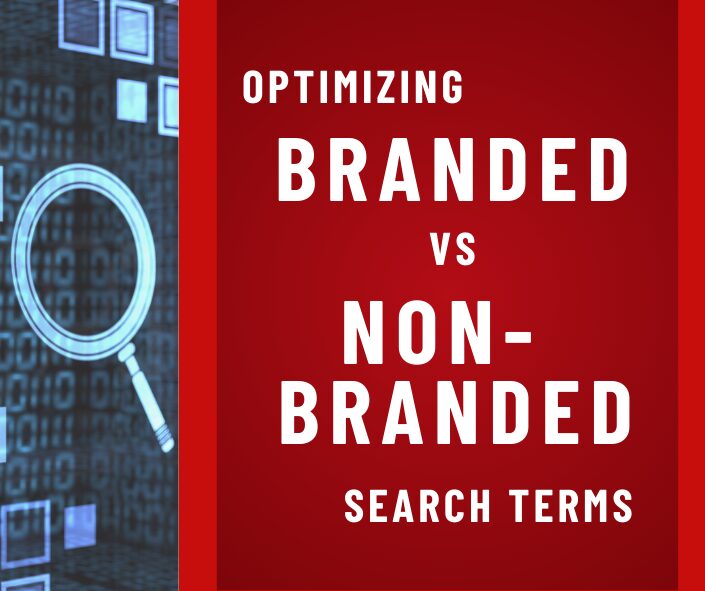For home service business owners, understanding the nuances between branded and non-branded search terms is crucial for driving both traffic and conversions through SEO. Here’s why both types of terms are important and how you can optimize them to boost your digital marketing efforts.
What are Branded Keywords?
Branded keywords are search terms that directly include the name of your brand along with a service you offer. These terms are often used by customers who are already familiar with your business and are closer to making a purchase decision.
Why is Optimizing for Branded Keywords Important?
- High Purchase Intent: Branded keywords indicate a high intent to purchase. Customers searching these terms are likely ready to hire your services, leading to higher conversion rates.
- Control Over Brand Narratives: Optimizing for branded keywords allows you to control the narrative around your brand on search engine results pages (SERPs). This is essential for managing your online reputation and ensuring that accurate information is readily available.
- Enhanced Customer Service: By ranking well for branded queries such as “your brand + customer service,” you ensure that existing customers find the right information easily, enhancing their overall experience and satisfaction.
- Integration with Other Marketing Efforts: Effective SEO for branded keywords supports and strengthens your other marketing efforts, which creates a cohesive brand message across all channels.
What are Non-Branded Keywords?
Non-branded keywords are more generic terms related to your services but do not include your specific brand name, like “emergency plumbing” or “AC installation near me.” These terms target potential customers who are in the research phase and have not yet decided on a service provider.
Why is Optimizing for Non-Branded Keywords Important?
- Broader Audience Reach: Non-branded keywords help you reach potential clients who may not know your company but are looking for the services you offer.
- Competitive Edge: By ranking for non-branded terms, you position your business alongside more prominent brands, potentially capturing a significant share of the market.
- Brand Awareness: Effective SEO for non-branded terms can indirectly boost your brand awareness. As more people visit your site through generic searches, they become familiar with your brand, increasing the likelihood of them returning through branded searches in the future.
How to Optimize for Branded and Non-Branded Terms
- Ensure your website clearly mentions your brand name combined with the various services you offer.
- Optimize meta descriptions, titles, and content to include both your brand name and relevant service keywords.
- Monitor your brand’s health by analyzing traffic and search trends for branded terms, adjusting your strategy as needed.
- Perform extensive keyword research to identify high-volume terms that potential customers might use.
- Create informative, engaging content that addresses these terms, such as blog posts or FAQs that answer common questions in your industry.
- Focus on local SEO tactics, like including city or region names in your keywords, to capture traffic from potential customers in your area.
Crafting Your Path to SEO Success
Balancing the optimization for both branded and non-branded search terms is essential for maximizing your online visibility and attracting more customers to your home service business. By understanding the unique roles these types of keywords play in the buyer’s journey, you can craft a more effective SEO strategy that boosts traffic, enhances brand recognition, and drives conversions.
At CI Web Group, we perform a comprehensive market analysis to determine the best phrases that will rank on page 1 of Google for your business. Our recommendations will encompass a mix of high-competition and low-competition options as well as branded and non-branded phrases. This strategy is designed to steadily grow your digital presence, helping you attract more customers and plan for the future.





















